- Home
- Iris Murdoch
The Book and the Brotherhood Page 12
The Book and the Brotherhood Read online
Page 12
Time passed. Sinclair was dead. Crimond had joined the Labour Party. He was becoming a popular figure on the far left, and was respectfully agreed to be an important intellectual. He became a parliamentary candidate. Duncan was in London (after Geneva and before Madrid) and Jean was working (unpaid of course) as Crimond’s research assistant. Gerard and Rose had not forgotten Sinclair’s imagined Gesellschaft and, as it later appeared, Rose preserved the notion that this enabling of Crimond would constitute a sort of memorial to Sinclair who had so much admired him. The fact that Crimond had remained on the extreme left, while the others now held more moderate opinions, was not of course taken to matter. In a way, as Gerard and Jenkin agreed, they all felt a bit guilty before Crimond, that is before his ascetism and his absolute commitment. After the election (it was a hopeless seat, he did not expect to be elected) Gerard, prompted by Rose, questioned Crimond again about the book which he once said he would write. Jean and Duncan were by now in Madrid. Crimond, who had moved into larger no less shabby quarters in Camberwell, said he was about to start writing it. He also mentioned (in answer to questions) that he had taken a part-time job as an assistant in a left-wing bookshop. Gerard consulted the others, Rose, Jenkin, Duncan and Jean. He also consulted his father, and Jean consulted hers. A sort of informal document, not of course a legal instrument, was drawn up describing the proposed Gesellschaft as a group of supporters who would contribute appropriate sums of money annually in order to give Crimond enough free time to write his book. Matthew, Gerard’s father, joined in because he had been an ardent socialist when young and felt ashamed of being bored by politics now. Jean’s father, Joel Kowitz, who was to make the largest contribution, joined because he adored Jean and did everything that she asked. The next question was, would Crimond accept the money; there was disagreement, even bets, about the likelihood of this. Gerard, in some anxiety, invited Crimond round, explained the plan and presented the document. Crimond immediately said no, then said that he would think about it. More time passed. Finally Crimond, pressed by Gerard and then by Jenkin, agreed.
So the Crimondgesellschaft came into being. Of course no time-limit was mentioned. The committee, consisting of these members (only Joel never turned up), was to decide whether contributions should be increased (in pace with inflation) or adjusted (in relation to contributors’ circumstances). A kind of silence then ensued. The benefactors did not like to ask questions about the book in case they might seem to be anxious about their investment, and Crimond, after suitable initial gratitude, provided no reports or acknowledgements. In fact, as they ruefully noticed, he promptly and almost completely broke off relations with his ‘supporters’, and was only by hearsay known to be travelling in America. (It’s only to be expected,’ said Jenkin understandingly.) There followed in due course, and not very long after, the drama in Ireland and its sequel, which has been recounted, which caused them all, especially Rose, a good deal of distress, and even anger against Crimond. After this, and after Jean’s return to Duncan, friendship, even communication, with the offender seemed for a time no longer possible, although of course the monies in aid of the book, maintained at a generous level, continued to be paid as promised. Rose uttered feelings which the others hesitated to express in saying that Crimond ought not now to accept their help. But of course, as they all more soberly agreed, it was necessary to separate their ruffled feelings from their promise, and from the particular interest which had prompted it, an interest which referred back to Sinclair’s original idea, and even further to Sinclair’s affection for Crimond.
Loyalty to Jean and Duncan seemed for some while to preclude any communication with Crimond, but as time went on it seemed to Gerard absurd to make such a point of ignoring him. Gerard was incapable of ‘cutting’ someone he knew, had in this instance known so long; as one grows older the fact of having known someone ‘all one’s life’ becomes more important. In any case he was interested in Crimond and reluctant to lose touch with so unusual a man. So it was that Gerard did infrequently see the miscreant, ostensibly to ask about the book, though this subject was rarely raised and never pursued. Jenkin too, said disapprovingly by Rose to be ‘soft’ in this respect, saw Crimond now and then, coming across him in a more natural and ordinary way in political contexts, Jenkin, unlike Gerard and Duncan, having remained a member of the Labour Party. Crimond was still a member too, though threatened with expulsion and eventually expelled. This second expulsion, which caused a stir and even a serious row in the party, was said to have pleased Crimond very much, even completed some sort of proof of the soundness of his ideas. He declared, in a speech unintelligible to his young audience who had never read Kipling, that now, like Mowgli, he would ‘hunt alone in the forest’. If he expected cries of ‘And we will hunt with thee’, they did not come; there were however numerous gratifying expressions of sympathy in many quarters. Crimond continued to be politically active and audible, speaking at meetings, writing articles and publishing ad hoc pamphlets. He was increasingly said, however, to have ‘missed the bus’. He would never, with his extreme views, get into parliament, he was not regarded as an academic, he had no coherent intellectual position, and was also criticised for lacking any effective day-to-day connection with the praxis of the working-class movement. He had (it was said) no status except as a phenomenon, and his following of disaffected young people was not large enough to be dangerous. He appeared, indeed, as a lonely revolutionary hunter: a view which, on later estimates, did him less than justice.
Years passed during which Crimond continued to receive a salary which set him free to indulge in political activity which his ‘supporters’ increasingly disapproved of, and to write, or pretend to write, a book which, if it ever appeared, must exert a dangerous and pernicious influence. It became more difficult to feel that this was simply a matter of keeping a promise, and began to be thought of as a ridiculous, irrational, intolerable situation about which something must be done. This was the state of indecision which Crimond’s second abduction of Jean Cambus seemed likely to bring to a head.
At about the time when Gerard was asleep at the kitchen table at the house in Notting Hill, and Duncan, in Kensington, was dropping Jean’s slippers into a wastepaper basket, Tamar Hernshaw, in Acton, was sitting in a state of appalled misery facing her mother Violet. The flat was small and extremely dirty. Violet’s bedroom, where the bed was never made, was full of the plastic bags which she compulsively collected. They were sitting in the kitchen. The floor was littered with newspapers, the table was covered with used plates, milk bottles, sauce bottles, pots of mustard, pots of jam, crusts of bread, bits of old cheese, a squeeze of butter in a greasy paper, a pot of tea, now cold, made for Tamar, who had not touched it. The discussion, which had been going on now for some time, had begun to repeat itself.
‘I can’t get a job,’ said Violet, ‘you know I can’t get a job!’
‘Couldn’t you –?’
‘Couldn’t I what? I can’t do anything! Even if I could get a part-time job as a waitress – we need big money, not scraps of what I could earn by killing myself slaving! You keep telling me I’m not young –’
‘I don’t, I just said –’
‘Everything’s gone up! You live in a dream world where you don’t think about money. All right, it’s my fault, I wanted you to have a good education –’
‘I know, I know, I’m grateful –’
‘Well now’s the time to show it. Everything’s gone up, rates, taxes, food, clothes, the mortgage – God, the mortgage, you don’t even know what that is! We can’t afford the telephone, I’m having it disconnected. And feeding you as a vegetarian costs the earth. You drift along as if everything will always be ordered to suit you! But I’m in debt, I’m seriously in debt, if we don’t do something drastic we’ll lose the flat.’
‘I’ve got a grant,’ said Tamar, restraining tears, for she was beginning to see that the situation was hopeless. ‘And you know I can live on practically nothing – I don’t
need any clothes and –’
‘You’ll get anorexia again if you aren’t careful, it isn’t fair to you –’
‘I can judge what’s fair to me!’
‘No, you can’t. You’ve had good years at the university enjoying yourself –’
‘Can’t we borrow from Gerard – or from Pat and Gideon –’
‘I’m not going to go crawling to them, and I’ll never forgive you if you do! Haven’t you any pride, any respect for me? And what’s the use of getting even more into debt?’
‘Or I could borrow from Jean –’
‘From her? Never! I detest that woman – Oh I know she’s your idol, you wish she was your mother!’
‘Look,’ said Tamar, though she knew this was even more out of the question, ‘they’re rich, Gideon is anyway, and Jean is, they’d give us the money.’
‘Tamar, don’t make me sick! You don’t imagine I like telling you all this – I hoped I wouldn’t have to. Please try to face reality, and help me to face it!’
‘I can’t give up Oxford now, I must do my final exams or the whole thing’s thrown away – it’s now or never –’
‘You’ve got a funny idea of education if all you care about is a bit of paper to say you’ve passed an exam! You must have learnt something in two years, surely that’ll do you, anyway it’ll have to!’
‘But I want to go on – if I get a first I can get another grant to stay on and do a doctorate – I want to really study, I want to be a scholar, I want to write, I want to teach – I must keep going now – later on is no good.’
‘So you want to be Doctor Hernshaw, that’s it, is it?’
‘I won’t cost you anything –’
‘You’re costing me something all the time by not earning! That money Uncle Matthew gave us has all gone –’
‘I thought it was invested.’
‘Invested! We can’t afford investments! I’ve had to spend it – to buy your expensive books and that ball dress – and now you’ve lost your coat and that grand shawl someone gave you –’
‘Gerard gave it to me –’
‘And you lost your partner, can’t you get anything right? At least now you can sell all those books – Don’t look like that, and don’t say I’m trying to ruin your life because I ruined my own, I know you’re thinking that. I know they’ve said it to you –’
‘No –!’
‘Well, they will now.’
‘It’s only a year to wait, can’t we wait? I must do my exams –’
‘You can pick it up later, you could go on studying at evening classes, lots of people do that. They say it’s better to be a mature student anyway.’
‘Oxford doesn’t work like that, you can’t just drop in and out, you have to keep straight on, it’s very difficult to be there at all and the exams are very difficult, you have to keep on studying ever so hard, I can’t leave now, it would spoil everything, I’m ready now, I’ve been working very hard, I’ve got it all in me – my tutor told me –’
‘You mean you’ll forget all those facts? You can mug them up again. You’ll do better after you’ve been out in the real world, you’ll probably see it’s a waste of time anyway. You’re just infatuated with Oxford, you think it’s all so impressive and grand – but what has university education done for that lot, Gerard and his precious friends, except make them into prigs and snobs and cut them off from ordinary life and real people? Don’t you realise that you are becoming a snob?’
‘If I go on and get that degree I’ll be able to get a better paid job and earn more money –’
‘Tamar, you haven’t understood, you haven’t been listening. I can’t afford to keep you any more. I can’t afford to keep anything any more. I owe money, if I don’t pay it I’ll be in a law court. I can’t earn it. You must. It’s as simple as that.’
They sat silently looking at each other across the table. Tamar had hastily taken off her ball dress and was now barefoot in a shirt and jeans. The two women, for Tamar though she seemed so childish was indeed a woman, presented a marked contrast. They were so unlike that it might have been imagined that Tamar sprang, like Athena, out of her father’s head without female assistance: her vanished unknown father who did not know that she existed, and about whom, especially when she lay awake at night, she so often and so ardently thought. She was exceedingly thin and had suffered from anorexia nervosa when she was sixteen. The thinness of her face enhanced her eyes which were large and mournful and wild like those of a savage child, both fierce and frightened, and were of the greenish-brownish colour known as hazel. Her thin silky hair which was straight and cut to the earlobe and parted at the side was of a matching brown colour, not exactly mousy, a sort of dulled yet lively woody brown with intimations of green, the colour of trunks of trees, of ash trees or cherry trees or old birch trees. Her legs were long and thin and being shapely could be called slender. Her neck was thin, her nose was short, her hands and feet were small. Of her youthful breasts, small and exceedingly round, she thought little, though a few discerning persons had thought much. Her complexion was pale and clear, her cheeks flushing faintly, her eye lids delicate as if transparent, as was her neck.
Violet was in more obvious ways handsome and was, as Rose Curtland had remarked, still an attractive woman, which was not very surprising as she was not much over forty. She was taller than her daughter with a fuller finer figure, she wore her chestnut hair (now discreetly tinted) in a fringe, her eyes were markedly blue. She was short-sighted, and when she put on (as rarely as possible) her big round spectacles she could look clever and slightly stern, like a shrewd bossy office woman. Her beautifully shaped mouth, which could also look stern, a stern rose-bud, had lately begun to droop a little. The expression which in Tamar’s face was sad, was in her mother’s more positively resentful, even bellicose. As they now tensely stared at each other the similarity between them was, in their fierce concentrated expressions which mingled guilt and fear and old familiar misery, at its most evident. Violet had plenty to be bellicose about. She had been dealt a rotten hand by fate, or, to use an even more painful image, had stupidly thrown away such good cards as she had. As an illegitimate child with a feckless drug-addicted rarely visible father, she certainly had a bad start. Her mother had resented her existence. Violet, well aware of the baleful repetition, resented Tamar’s existence. An important difference was that whereas Violet and her mother had quarrelled endlessly and bitterly, Tamar and Violet did not quarrel much. This was, Violet knew, no credit to her but was largely because Tamar was, to her mother, a ‘bit of an angel’. This angelicness was at times a consolation, but more often a source of guilt which increased Violet’s sense of being ill done by.
She had left school at sixteen to get away from her mother. She lost touch with her mother and was pleased to learn later that she was dead. After her father’s death his family made serious attempts to help her, but she kept aloof from them. She worked as a maid in a hotel, saved up and did a typing course, worked as a typist. When she was twenty she was beautiful and had various unsatisfactory lovers. At this stage she made some serious mistakes. She rejected someone whom she should have seen as a promising suitor. Perhaps, she thought later, she was simply not in love, and was still too young to realise that a solitary penniless girl cannot afford the luxury of marriage for love. Her most lasting mistake was of course Tamar and the wandering Scand. As Violet had frequently explained to Tamar, she would have been promptly ‘got rid of’ if her mother had had, at the crucial time, enough money to arrange it. This was in the old days when such abortions were illegal, secret and expensive, and there was no respected ‘right to choose’. Violet was not able to choose and Tamar was unchosen and often made to feel so. The story ran that Violet, not even willing to think of a name for the unwelcome brat, let her be christened at the registry office by the registrar, a lay preacher who suggested ‘Tamar’ and his secretary, who offered her own name, ‘Marjorie’. Tamar received a decent school education at the expe
nse of the state and proved to be clever and very industrious. Violet was pleased when she went to Oxford, but was envious, and jealous too when Tamar began to know some men and could be presumed to have lovers. Violet was also able to value her daughter’s docility, her desire to please, her quiet acceptance of a very limited way of life. Several sums of money had been, secretly, accepted from Uncle Matthew, but money offered by Gerard and Patricia was rejected with scorn. Tamar was allowed to accept Christmas presents however, and the cashmere shawl, from Gerard, was one of these.
‘I could get a job in the long vacation,’ said Tamar.
‘Sorting letters in a post office? No! You must work properly, you must get us out of debt, you must keep us out of debt, you must settle down to being the breadwinner from now on!’
‘Can’t we just wait –’
‘No, we can’t! I’ve done enough for you!’ said Violet, voicing the thought at which Tamar was arriving. They looked at each other for a second with faces made similar by misery and anger.
Tamar smoothed her face. She knew it was no use trying to explain to her mother the difference between a university education and being a mature student going to evening classes. It was now that the precious gift must be seized. She had already learnt so much, more than she had ever dreamt herself capable of, and that was just the beginning of the metamorphosis which was now to be so brutally cut off. She saw that the loss was terrible, no less than the loss of her whole life, the instant substitution of some sort of tenth-rate life for the one to which she had looked forward, to which she felt she had a right. Restraining her tears she tried to take in that there was no alternative to surrender. She knew how little money there was, and she believed what Violet said.
The telephone rang. Violet left the room. From where she sat Tamar began spiritlessly piling the dirty plates together on the stained cloth and assembling the jars and pots which never left the awful table into an orderly group. She entertained for a second only the traditional thought, which lived between them like a folk idea, that her mother had ruined her own life and was intent on ruining her daughter’s. Tamar had early understood the huge dark mass of her mother’s bitterness, she had seen how it was possible to expend all one’s spirit, all one’s life-energy, in resentment, remorse, anger and hatred. She could picture (for she heard enough about it) her mother’s relation with her mother, and felt even as a child, not only the automatic force of her mother’s desire to ‘get her own back’, but also in her own heart a dark atom of that responding bitter anger. She had seen how a life can be ruined and had decided that she would not ruin her own in such a game of repetition. It might be said that, recognising a choice between becoming a demon and becoming a saint she had chosen the latter. She saw that her safety lay, not in calculated hostility or intelligent self-regarding warfare, but in some genuine surrender of self. This was her ‘angelic’ gamble, which so irritated Violet who thought she ‘saw through’ it, and which led Gerard to regard Tamar as a virgin priestess. A habit of docility and never answering back had not been too hard to acquire. Only now did poor Tamar begin to see how agonisingly painful and (it must be seen) irreparably damaging surrender of self could be.

 Jackson's Dilemma
Jackson's Dilemma The Flight From the Enchanter
The Flight From the Enchanter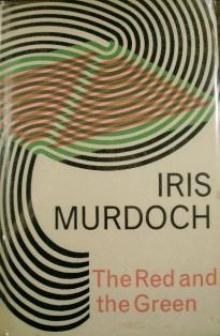 The Red and the Green (Vintage Classics)
The Red and the Green (Vintage Classics)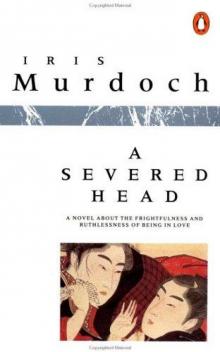 A Severed Head
A Severed Head The Black Prince
The Black Prince The Nice and the Good
The Nice and the Good The Unicorn
The Unicorn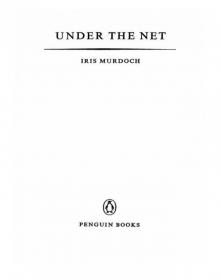 Under the Net
Under the Net The Italian Girl
The Italian Girl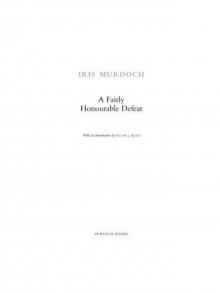 A Fairly Honourable Defeat
A Fairly Honourable Defeat An Accidental Man
An Accidental Man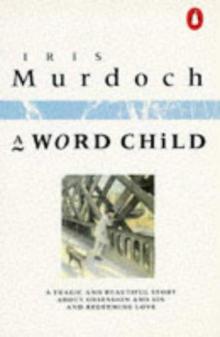 A Word Child
A Word Child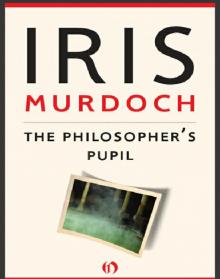 The Philosopher's Pupil
The Philosopher's Pupil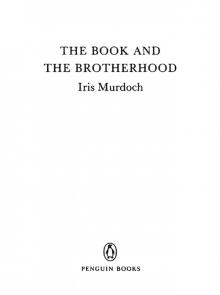 The Book and the Brotherhood
The Book and the Brotherhood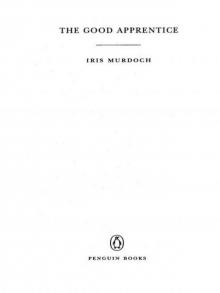 The Good Apprentice
The Good Apprentice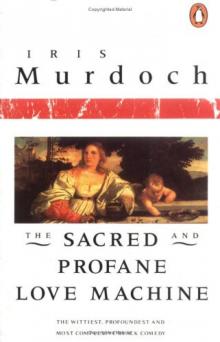 The Sacred and Profane Love Machine
The Sacred and Profane Love Machine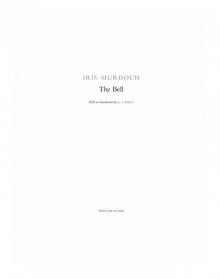 The Bell
The Bell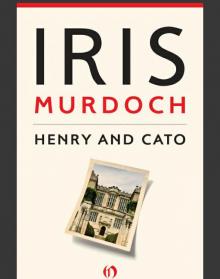 Henry and Cato
Henry and Cato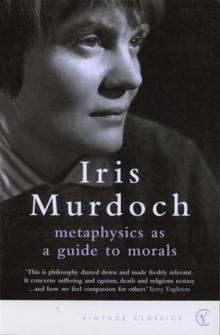 Metaphysics as a Guide to Morals
Metaphysics as a Guide to Morals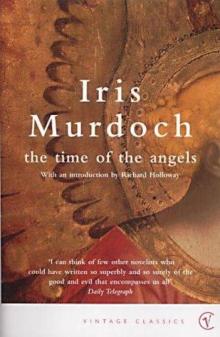 The Time of the Angels
The Time of the Angels Nuns and Soldiers
Nuns and Soldiers The Green Knight
The Green Knight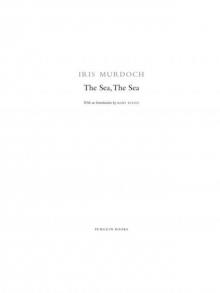 The Sea, the Sea
The Sea, the Sea Sartre: Romantic Rationalist
Sartre: Romantic Rationalist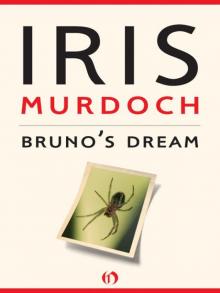 Bruno's Dream
Bruno's Dream An Unofficial rose
An Unofficial rose Sartre
Sartre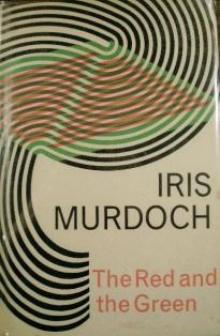 The Red and The Green
The Red and The Green